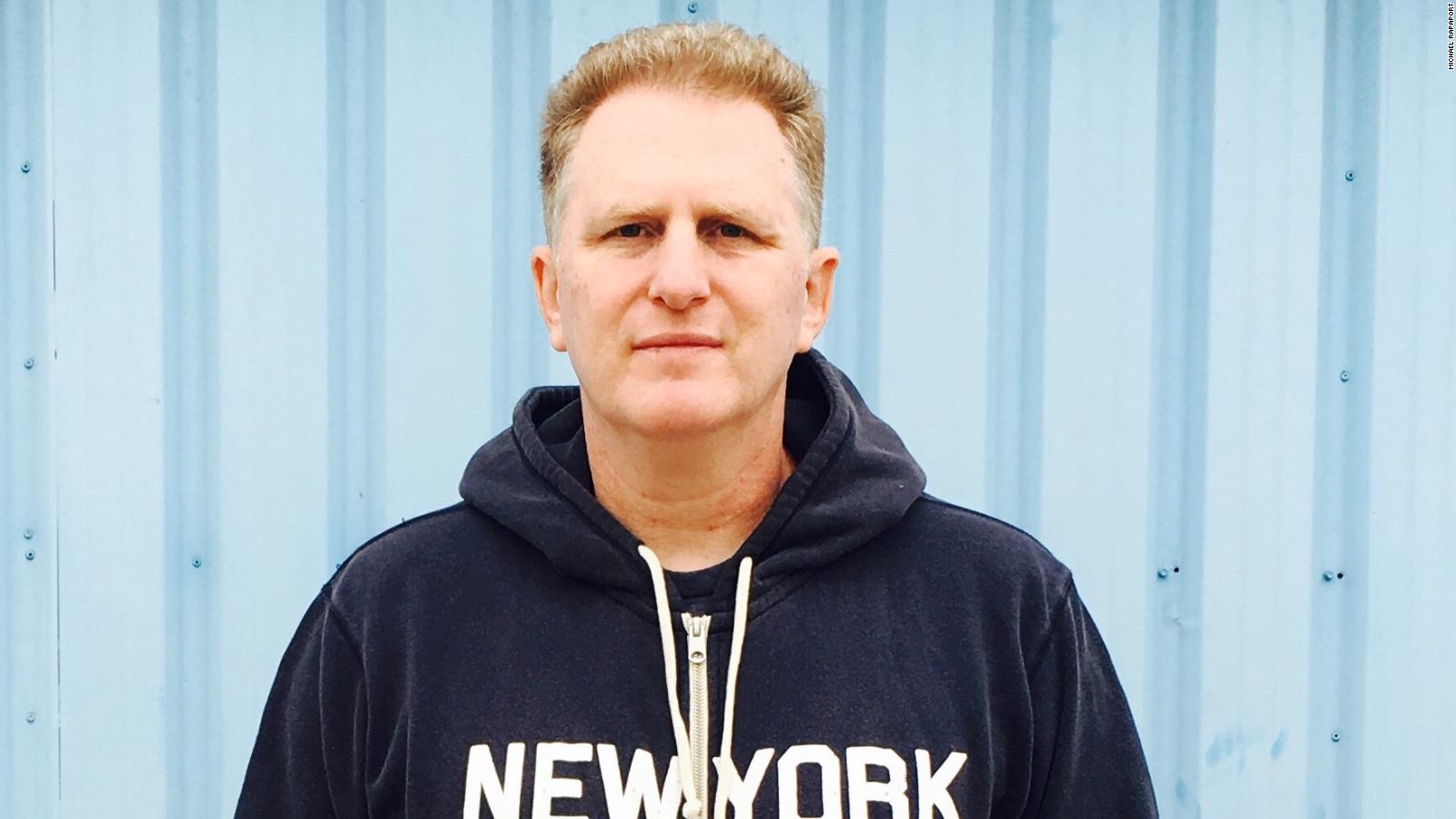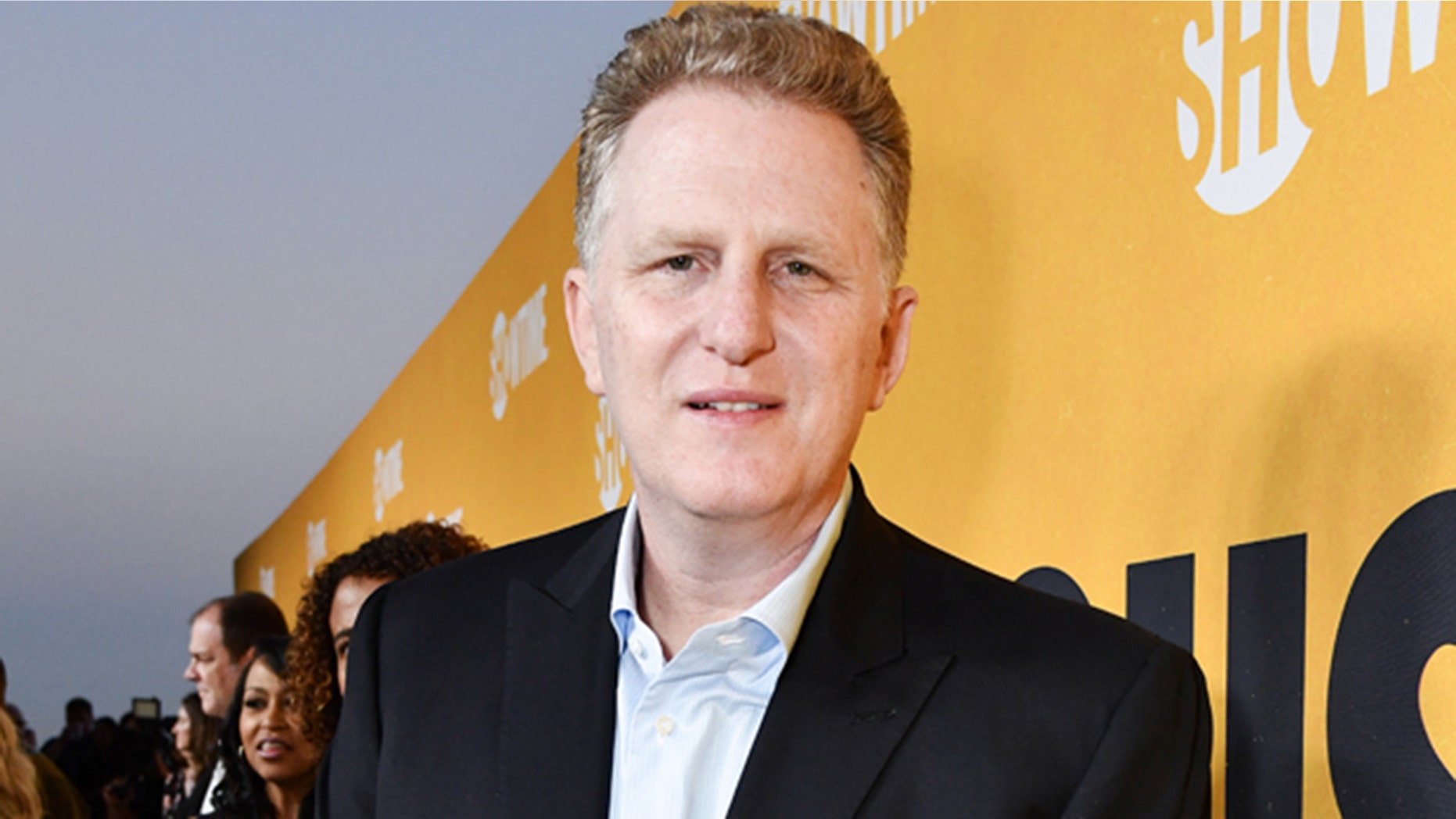From Fierce Critic To Potential Voter: Michael Rapaport's Trump Reversal
Table of Contents
- The Unlikely Shift: Michael Rapaport and Donald Trump
- Michael Rapaport: Biography
- A History of Opposition: Rapaport's Early Stance on Trump
- The Turning Point: "My Political Views Have Changed Immensely"
- Beyond Trump: Disillusionment with the Democratic Party
- "Won't Get Fooled Again": A New Perspective on Leadership
- The Broader Implications: Michael Rapaport's Political Evolution and Public Discourse
- Conclusion: A Shifting Political Tide
The Unlikely Shift: Michael Rapaport and Donald Trump
For years, the mere mention of Donald Trump's name would often trigger a passionate, expletive-laden tirade from Michael Rapaport. The actor, known for his roles in films like 'Beautiful Girls' and 'True Romance,' and the television series 'Atypical,' leveraged his significant social media presence to relentlessly attack the former president. His videos, often filmed as he walked through various neighborhoods, were a staple of anti-Trump sentiment, characterized by their raw emotion and unfiltered language. Much of what he expressed about the former president, as noted in various reports, "can't be spelled out here" due to its explicit nature. Yet, in recent interviews and social media posts, a discernible softening has emerged in Rapaport's tone regarding the combative leader. This shift is not subtle; it's a profound re-evaluation that has led him to declare that voting for Donald Trump is now "on the table." This declaration is particularly striking given his past, where he was arguably one of Donald Trump's biggest critics in Hollywood. The transition from vehement opposition to open consideration of support is a testament to the turbulent political climate and the changing priorities of some voters. It signals a potential realignment that extends beyond traditional party lines, hinting at a deeper dissatisfaction with the status quo that transcends personal animosity.Michael Rapaport: Biography
Before delving deeper into his political evolution, it's essential to understand the individual behind these surprising statements. Michael Rapaport is a multifaceted personality, widely recognized for his distinctive voice, energetic demeanor, and extensive career in film and television.| Full Name | Michael David Rapaport |
| Date of Birth | March 20, 1970 |
| Place of Birth | New York City, New York, U.S. |
| Occupation | Actor, Comedian, Podcaster, Director |
| Notable Works (Selected) |
|
| Public Persona | Known for his outspoken, often confrontational, and humorous commentary on social and political issues, particularly on social media. |
A History of Opposition: Rapaport's Early Stance on Trump
To fully appreciate the magnitude of Michael Rapaport's current stance on Donald Trump, one must first recall the intensity of his previous opposition. Throughout Trump's presidency, Rapaport was an unwavering and vocal critic. His social media feeds were inundated with videos and posts expressing his profound frustration and anger towards the then-president. He "routinely launched vile attacks against Trump and the Trump family," using strong language and highly emotional appeals to convey his disapproval. These attacks were not merely political disagreements; they often delved into personal insults and condemnation, reflecting a deep-seated animosity. Rapaport frequently shared videos expressing this frustration, sometimes bellowing directly at the former president in online rants. His impassioned performances resonated with many who shared his anti-Trump sentiments, cementing his reputation as one of the most visible celebrity opponents of the administration. The idea that this same individual would now consider voting for Donald Trump would have seemed utterly inconceivable just a few years ago. His past rhetoric leaves no doubt about the strength of his prior convictions, making his recent admissions all the more significant and, for some, bewildering.The Turning Point: "My Political Views Have Changed Immensely"
The question that naturally arises is: what caused such a dramatic pivot? Michael Rapaport himself has offered some insight into this profound transformation. In a recent interview, he candidly stated, "my political views have changed immensely." This admission is not just a casual remark; it signifies a fundamental re-evaluation of his core beliefs and priorities. He further admitted that he "had been wrong about President Donald Trump," a remarkable concession from someone who had been so vehemently opposed. This change isn't isolated but appears to be a culmination of various factors, primarily stemming from his growing disillusionment with the current political landscape and, notably, the Democratic Party. While he once focused his ire squarely on Trump, his recent frustration seems to have broadened to encompass what he perceives as failures or missteps by those on the other side of the political spectrum. This shift suggests that his current consideration of Donald Trump is less an endorsement of the former president's past actions and more a reflection of his dissatisfaction with the alternatives.The Migrant Crisis and NYC: A Catalyst for Change
One of the most immediate and publicly cited catalysts for Michael Rapaport's evolving perspective has been the escalating migrant crisis, particularly as it impacts his home city of New York. Rapaport shared a video to X (formerly Twitter) railing against a specific news story about migrants in New York City beating up cops and then being released shortly after the altercation. This incident appears to have struck a raw nerve, pushing him to reconsider his political allegiances. He explicitly stated that if authorities don't "clean it up," voting for Donald Trump is "on the table." This direct link between a specific, tangible issue and his potential vote for Trump underscores a pragmatic shift in his political thinking. For Rapaport, the perceived breakdown of law and order and the inability of current leadership to address the crisis effectively seem to outweigh his past ideological objections to Trump. This particular incident, involving the safety of law enforcement and the consequences of criminal acts, appears to have crystallized his growing frustration, leading him to explore options he once deemed unthinkable. It highlights how real-world issues, when they directly impact an individual's community or sense of security, can dramatically alter political perspectives, even for those with deeply entrenched views.Beyond Trump: Disillusionment with the Democratic Party
While the migrant crisis served as a significant trigger, Michael Rapaport's softening stance towards Donald Trump is also deeply rooted in a broader disillusionment with the Democratic Party and the mainstream media. He has openly declared that he would be "unable to vote for Vice President Kamala Harris," emphatically stating, "I am not voting for Kamala Harris." This firm rejection of a key Democratic figure signals a profound break from his previous alignment. Rapaport's critique extends beyond individual politicians to the very fabric of the current Democratic platform and its perceived disconnect from the concerns of everyday Americans. He has suggested that his evolving views have "plenty to do with today's democratic party and the mainstream media," implying a sense of betrayal or misrepresentation. This sentiment resonates with a segment of voters who feel that the Democratic Party has drifted too far left or become too preoccupied with issues that do not directly address their immediate concerns, such as public safety and economic stability. For Rapaport, the choice is no longer simply about opposing Donald Trump but about finding a viable alternative that he believes can effectively govern and address the challenges facing the nation. His frustration with the current political establishment, particularly on the Democratic side, seems to be a driving force behind his unexpected re-evaluation of Trump.Walking Back the "Talking Shit": Acknowledging Past Mistakes
In a telling moment on "The Sage Steele Show," Michael Rapaport walked back "talking shit" about 2024 Republican presidential nominee Donald Trump. This public acknowledgment of his past aggressive rhetoric is a significant step, demonstrating a willingness to reflect on his own conduct. He explained his previous animosity, telling Steele, "I didn’t like his mouth," and citing "the mouth and the mean" as primary reasons for his intense dislike. This admission provides a nuanced understanding of his past criticism, suggesting it was as much about Trump's demeanor and communication style as it was about his policies. By admitting he "had been wrong about President Donald Trump," Rapaport isn't necessarily endorsing all of Trump's policies or past actions. Instead, he appears to be acknowledging that his personal aversion to Trump's style may have clouded his judgment or prevented him from seeing certain aspects of Trump's appeal or effectiveness. This willingness to retract past statements and admit error is rare in the highly polarized world of political commentary, making Rapaport's shift even more noteworthy. It suggests a move towards a more pragmatic assessment of leadership, where style might take a backseat to perceived effectiveness in addressing pressing issues."Won't Get Fooled Again": A New Perspective on Leadership
The phrase "Michael Rapaport won't get fooled again" encapsulates a crucial aspect of his political evolution. This sentiment suggests a deeper level of introspection and a determination to approach future political decisions with a more critical and less emotionally charged perspective. It implies that he feels he was, in some way, "fooled" or misled by the political narratives of the past, particularly those propagated by the Democratic Party and the mainstream media. This feeling of being "fooled" could refer to a variety of issues: perhaps the efficacy of certain policies, the characterization of political figures, or the overall direction of the country. This newfound skepticism leads him to seek a different kind of leadership, one that he believes will genuinely address the problems he sees, rather than simply adhering to established political ideologies. His willingness to consider Donald Trump, despite their contentious history, stems from a desire for real solutions to issues like the migrant crisis, which he views as a critical failure of current leadership. It's a pragmatic stance, prioritizing perceived effectiveness over partisan loyalty, signaling a voter who is now willing to cross traditional political lines in search of tangible results.A Goodfellas Analogy for Trump
In a moment that perfectly blends his entertainment background with his political commentary, Michael Rapaport offered Donald Trump some advice from the iconic 1990 mob flick "Goodfellas." In a recent YouTube video, Rapaport directly addressed the former president, stating, "Trump, take your pinch like a man," referring to a pivotal scene in the film where young Henry Hill (Christopher Serrone) gets busted but maintains his composure and loyalty. This analogy is telling. It suggests that Rapaport, despite his past criticisms, now views Trump as a figure who, like a mob boss, needs to endure challenges and setbacks with strength and resolve. It’s a complex sentiment, implying a grudging respect for Trump's resilience or perhaps a call for him to handle his current legal and political battles with a certain stoicism. This "Goodfellas" reference highlights Rapaport's unique, often street-smart approach to political commentary, using cultural touchstones to convey his evolving, nuanced perspective on Donald Trump. It’s not an endorsement of Trump’s character, but perhaps an acknowledgment of his unique political fortitude in the face of adversity.The Broader Implications: Michael Rapaport's Political Evolution and Public Discourse
Michael Rapaport's journey from a fierce critic to a potential supporter of Donald Trump is more than just a celebrity's changing opinion; it's a microcosm of the shifting political landscape in America. His very public and candid evolution reflects a growing segment of the electorate that feels increasingly disenfranchised by traditional political narratives and party loyalties. For many, the choice is no longer about supporting a specific party, but about finding solutions to pressing issues that directly impact their lives and communities. Rapaport's disillusionment with the Democratic Party, coupled with his frustration over issues like the migrant crisis, mirrors the sentiments of voters who feel that their concerns are not being adequately addressed by current leadership. His willingness to consider Donald Trump, despite their contentious history, highlights a pragmatic approach to politics where perceived effectiveness trumps ideological purity. This phenomenon challenges the conventional wisdom that political allegiances are fixed, suggesting that a significant portion of the population is open to re-evaluating their choices based on performance and tangible outcomes. The public discourse surrounding Rapaport's shift also underscores the intense polarization of modern politics, where even a hint of crossing party lines can spark both condemnation and applause. His case serves as a powerful reminder that political identities are fluid and can be profoundly influenced by real-world events and a growing sense of disillusionment with the status quo.Conclusion: A Shifting Political Tide
Michael Rapaport's dramatic reconsideration of Donald Trump, moving from one of his most vocal detractors to a potential voter, is a compelling narrative that encapsulates the unpredictable nature of contemporary politics. His candid admissions – that his "political views have changed immensely" and that he "had been wrong about President Donald Trump" – are not just personal revelations but indicators of a broader societal trend. This trend sees individuals, even those with deeply entrenched views, re-evaluating their allegiances in response to pressing issues like the migrant crisis and a growing disillusionment with established political parties and media narratives. Rapaport's journey highlights a pragmatic shift among some voters, where the desire for tangible solutions to perceived failures, particularly in areas like public safety and governance, outweighs past ideological or personal animosities. His inability to support Kamala Harris and his frustration with the Democratic Party underscore a search for leadership that he believes can effectively address the nation's challenges. As the next election approaches, Rapaport's evolving stance serves as a potent reminder that political loyalties are not static. It invites us all to consider the complex factors that shape individual convictions and the potential for unexpected realignments in a rapidly changing political landscape. What are your thoughts on Michael Rapaport's political evolution? Do you see his shift as an isolated incident, or does it reflect a larger trend among voters? Share your perspectives in the comments below, and if you found this analysis insightful, consider sharing it with others who might be interested in understanding the nuances of modern political shifts. For more deep dives into the intersection of celebrity and politics, explore our other articles on evolving public figures.
Rapaport talks Trump and political correctness - CNN Video

Michael Rapaport restrained American Airlines passenger who tried to

Michael Rapaport Goes Full New York in Viral, Profanity-Filled Trump Rant